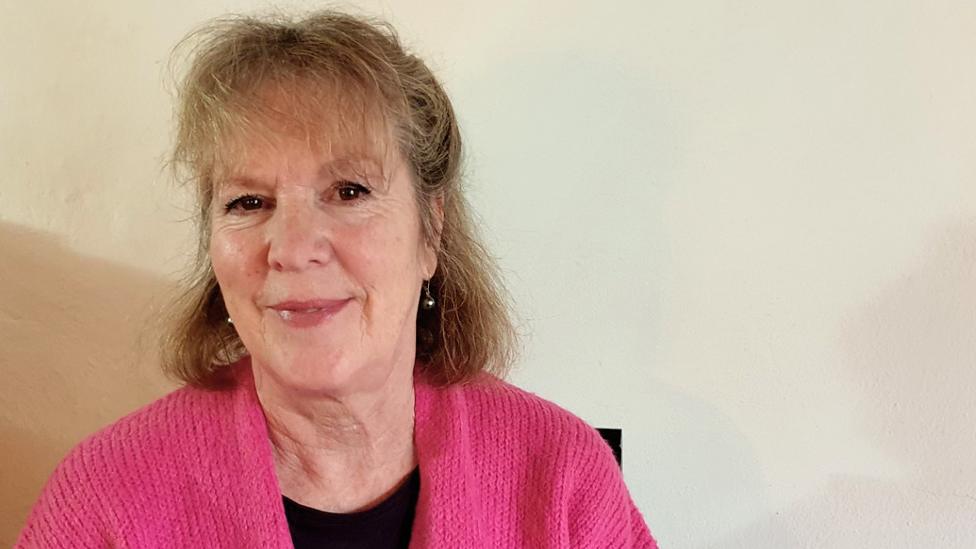Scammers target widowed nan's loneliness - family
Jasmine El Samad is warning others to learn the signs of romance fraud after her grandmother Doreen was scammed before she died
- Published
The family of an 81-year-old widow who was conned out of £27,000 in a romance fraud say they are heartbroken scammers preyed on her loneliness.
Doreen Daniel, from Angmering in West Sussex, became the victim of scammers shortly after her husband Gordon died.
Romance fraud is when someone is conned into sending money to a criminal who convinces them they are in a genuine relationship.
The Home Office says fraud makes up 40%, external of all recorded crime in England and Wales, with Action Fraud saying £92m was lost by victims to romance scams in 2024 alone.
Cases of romance fraud reported to Action Fraud have increased by 27% between 2020 and 2024.
'Had to be a secret'
Doreen's family said they were not aware she was being scammed until her bank card was declined at a supermarket.
When they looked at her accounts, they saw a large sum of money had been transferred out.
Karen Daniel, Doreen's daughter, said: "When we realised what was going on she told us she couldn't tell anyone and that it had to be a secret.
"To hit on someone who is that vulnerable when they have just lost their life partner, it makes me feel sick.
"How can somebody been so cruel to do that?" she said.
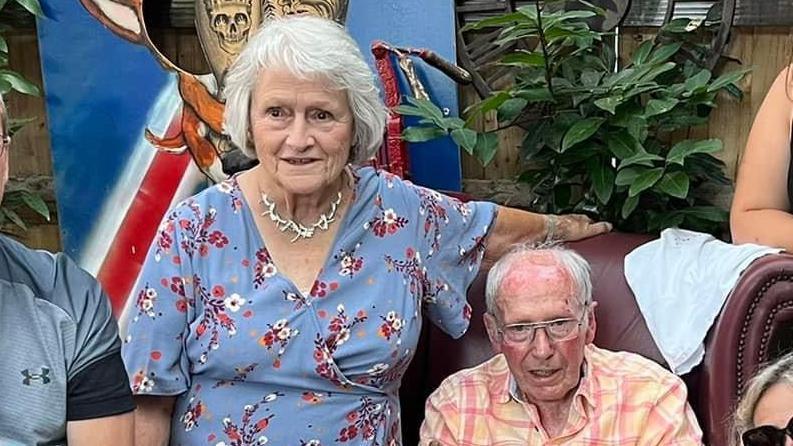
Doreen and her husband Gordon had been married for 60 years
Karen's daughter, Jasmine El Samad, said a man had been messaging and calling her grandmother on WhatsApp. He claimed to be a financial advisor called Adam and said he lived in Switzerland and Monaco.
She said he had convinced Doreen to download an app, which enabled him to take remote control of her devices so he could then transfer cash. He had convinced her the money would help her enter a raffle with a chance to win about £100,000.
Jasmine and Karen, say they believe Doreen was targeted because she had recently been widowed.
"He'd complimented her appearance, saying things like, 'you can't be 80'," Jasmine said.
"Flattery would have got you anywhere with Nan quite frankly at that point, after Granddad passed away.
"Making her think that she had this friend that was also going to change her life financially - it was the perfect combination of an attack really," she added.
Diet pills scam
Jasmine said Adam had archived all of the messages on WhatsApp "so we didn't find them for ages".
Doreen's family say they believe she had been the victim of a number of scams prior to the romance fraud, including ordering products such as diet pills through suspicious links on social media.
They said at one point they found a man in her house trying to sell her a water softening product for £4,000.
Karen said: "I believe that once you're scammed once these scammers just sell your data on to the next one and the next one."
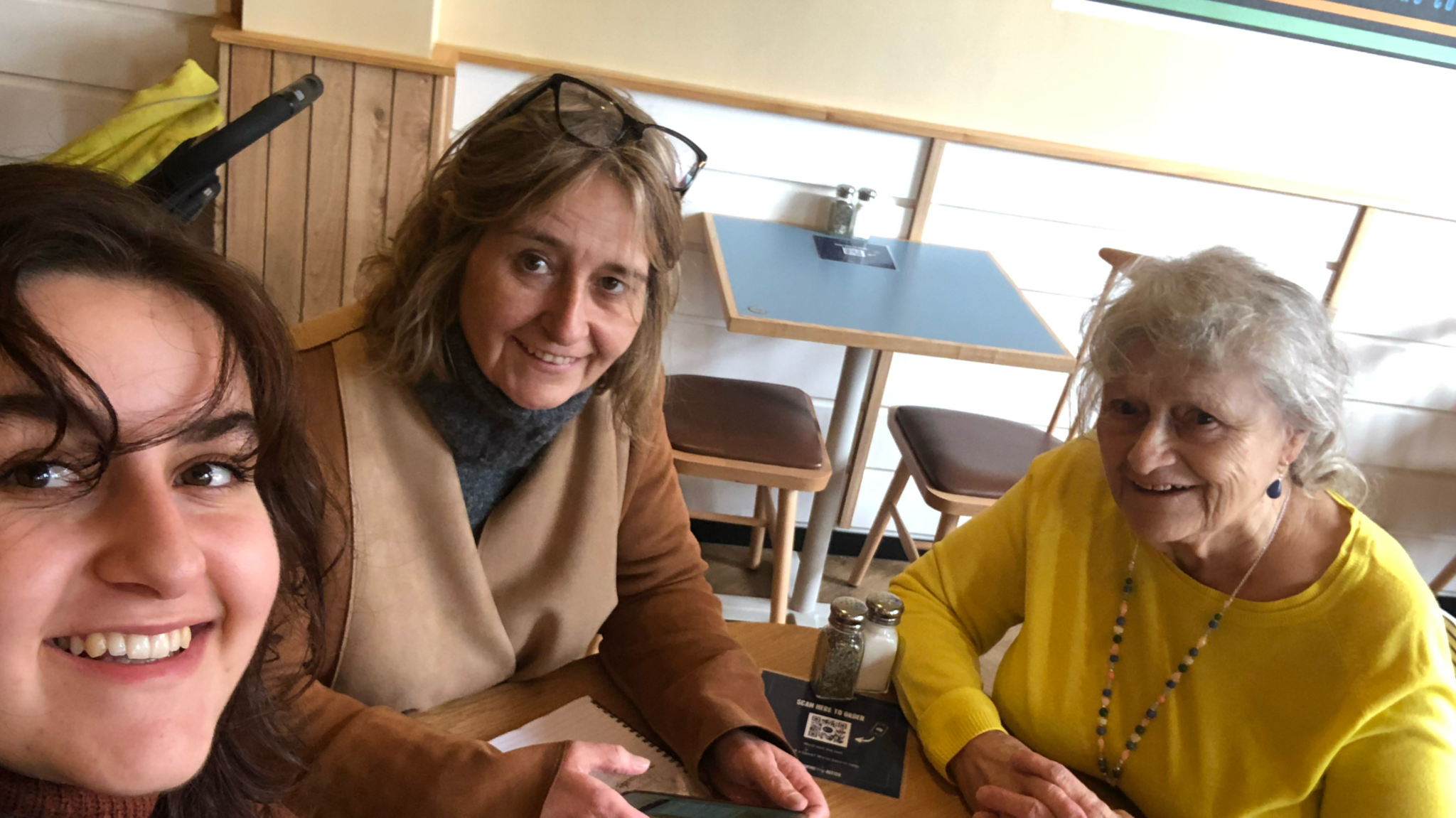
Jasmine and her mother Karen Daniel say they believe the scammers preyed on Doreen's loneliness
Jasmine, a journalism student, interviewed Doreen after the family discovered she had been conned, to get a better understanding of what had happened.
In the audio recording, Doreen said Adam had made her feel special and sounded very knowledgeable, but wouldn't let her see him on a video call.
On the recording Doreen said she believed she was entering a raffle to win the digital currency bitcoin. She admitted she had thought something wasn't right, but kept allowing the investments.
Doreen's family say they believe they missed some warning signs.
Her family were able to get around £18,000 back from the bank.
The crime was not reported to police.
Doreen went on to have two mini strokes.
Her family believe losing her husband and the stress and anxiety the scams caused, led to a rapid decline in Doreen's health.
She died in November 2023.
How to avoid romance scams
According to Action Fraud, signs of romance fraud include a person being secretive about their relationship or becoming hostile or angry when asked about their online partner.
They may have sent, or be planning to send, money to someone they have never met in person.
Advice for protecting yourself against scams includes:
Be suspicious of any requests for money from someone you have never met in person, particularly if you have only recently met online
Speak to your family or friends to get advice
Profile photos may not be genuine, so do your research first. Performing a reverse image search using a search engine can help you find photos that have been stolen from somewhere else
Advice for supporting a victim of a scam includes:
Reassure your loved one you are there for them and it is not their fault
Improve your own understanding about romance scams
Remember to look after yourself, too - supporting someone through romance fraud can be tough
Source: Action Fraud / Victim Support
Further support can be found via BBC Action Line.

Det Con Mark Newman is calling on the government and social media companies to do more to clamp down on romance fraud
Kent Police Det Con Mark Newman said: "Fraud crimes are being committed nationally and internationally and the modus operandi of these crimes are changing constantly, sometimes it seems like on a weekly basis.
"There needs to be a bigger response from the government, and social media companies need to intervene," he said.
"Time and time again social media companies are not bringing down accounts that we ask them to and they're making it hard for us to investigate. This needs to be brought up on a national scale more."
Meta, the company which owns Facebook, Instagram and WhatsApp, would not give a statement, but gave advice on how to avoid romance scams, external.
The Home Office said it was "taking decisive action to crack down" on scams through its new, expanded fraud strategy.
Mr Newman says bringing offenders to justice is difficult because the crimes are usually committed outside the UK, which means a there is a lower chance of bringing a prosecution.
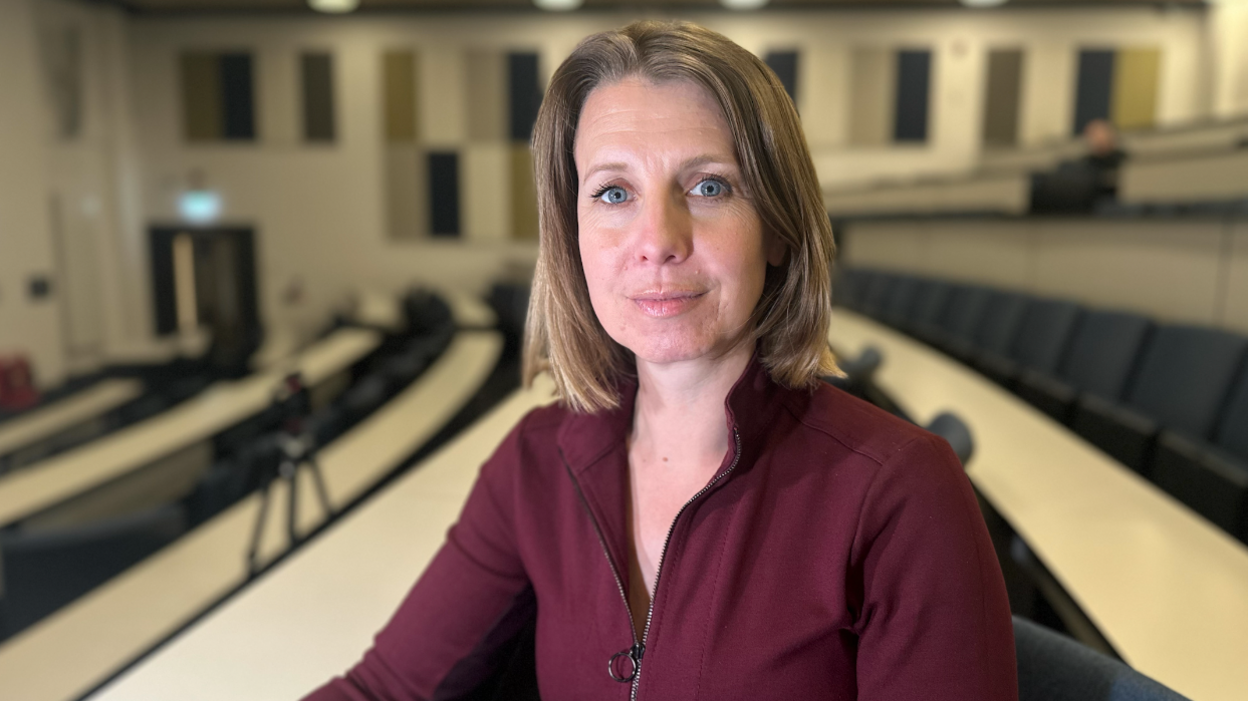
Dr Elisabeth Carter says criminals are very good at isolating their victims from sources of support
Dr Elisabeth Carter, a criminologist and forensic linguist at Kingston University, says fraud victims are groomed and coerced and should be treated similarly to victims of domestic abuse.
"Victims are being manipulated on the most basic human level."
Dr Carter explained: "We have to remember that the fraud that we recognise like the ones that pop up in your inbox aren't going to get you. The one that's going to get you will use your contextual and situational vulnerabilities and you won't realise it."
For more stories of romance fraud and betrayal Vicky Pattison hosts the Love Bombed podcast on BBC Sounds
Under the Online Safety Act, passed in 2023, social media sites and search engines now have a duty to prevent and minimise illegal fraudulent content appearing on their platforms, which includes romance fraud and other types of fraud by false representation.
If platforms do not comply, the media regulator Ofcom can take action. This includes imposing a fine of up to £18m or 10% of the company's qualifying worldwide revenue, whichever is greater.
From October 2024, banks were given new powers, external by the government to delay and investigate suspected fraudulent payments for up to 72 hours.
It has also been mandatory for banks and other payment service providers to reimburse customers who fall victim to certain types of fraud.
Security minister Dan Jarvis said: "I continue to urge the tech companies on whose platforms much of this criminality takes place to go further and faster to protect the public from fraud.
"We will continue to work with law enforcement partners at home and overseas to tackle these shameful criminals, and shut down their fraudulent operations. And we urge all members of the public to search Stop! Think Fraud to stay ahead of the most common scams, and increase their online security."
Follow BBC Sussex on Facebook, external, on X, external, and on Instagram, external. Send your story ideas to southeasttoday@bbc.co.uk, external or WhatsApp us on 08081 002250.
Related topics
- Published20 December 2024
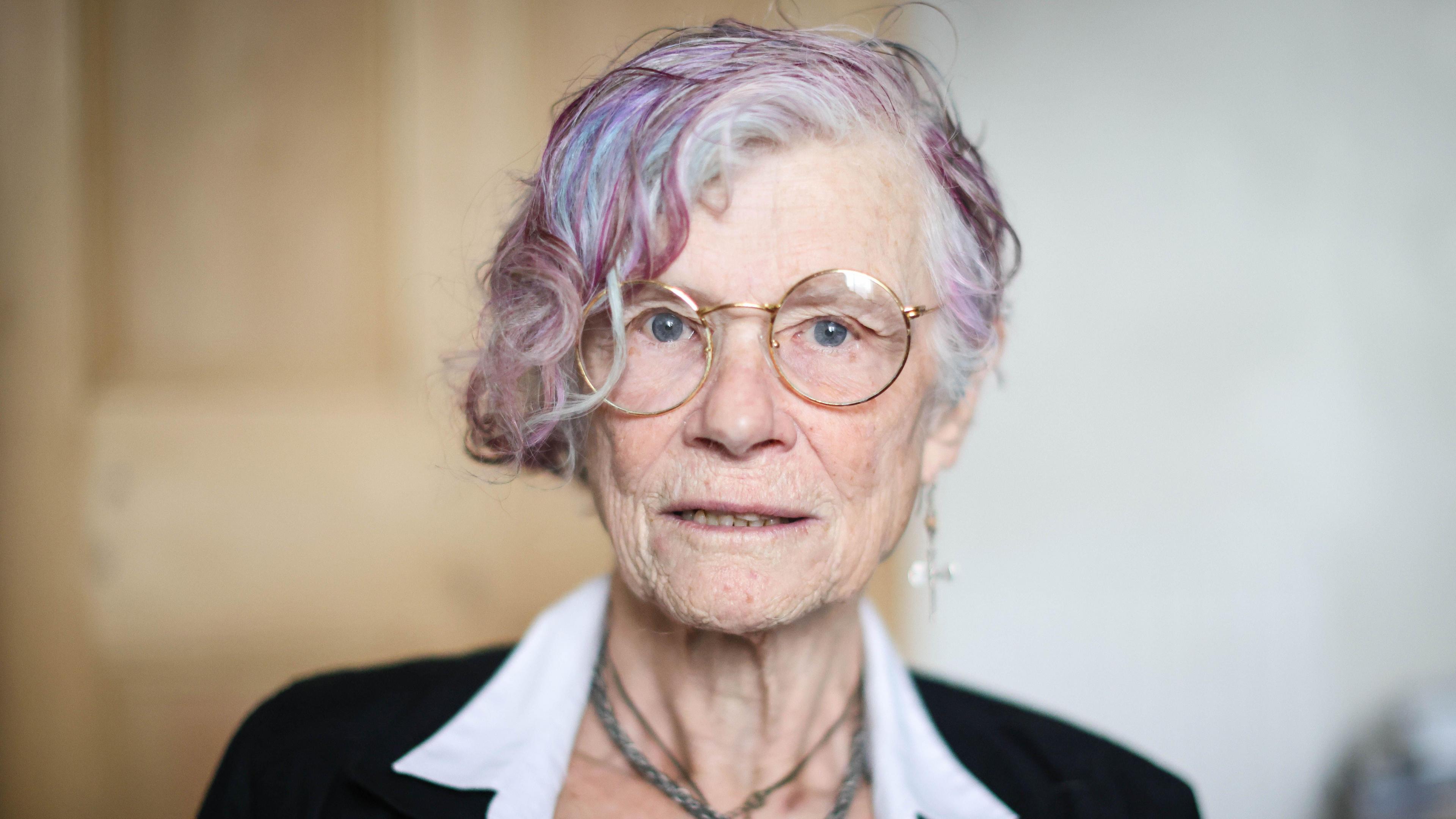
- Published15 February

- Published14 February 2024
